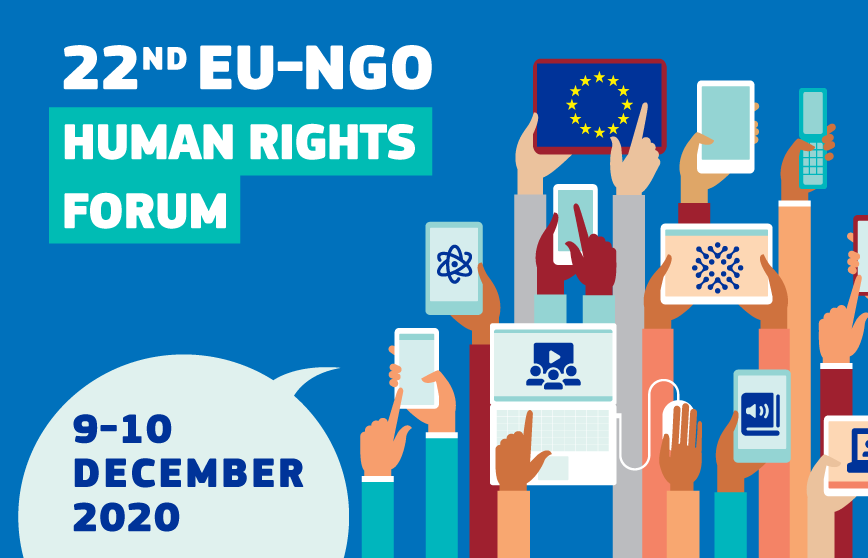22nd EU NGO Human Rights Forum - The Impact of New Technologies on Human Rights

On the 9th-10th of December 2020, the European Commission and the Human Rights and Democracy Network (EEAS) held the 22nd EU-NGO Human Rights Forum, which provided a platform for EU officials, human rights defenders, human rights experts, representatives from civil society and social media from all over the world to discuss the impact of digital technologies on human rights.
On the eve of Human Rights Day, UN High Commissioner for Human Rights, Michelle Bachelet delivered a statement in which she focused on the challenges and opportunities brought about by the digital revolution in relation to human rights. She outlined two central human rights concerns.
Firstly, the inequality crisis is also mirrored online. The lack of access to the “digital public square”, in particular for women, people living in poverty in developing countries and those living in rural areas aggravated their already marginalised situation. Discrimination continues even when the access is available, as technology is not neutral. The biases built in automated systems often work well for the privileged and hurt minorities.
The second concern is the infringement of the right to freedom of expression in online space, coupled with the misuse of personal data. In addition, responding to hate speech or other online hostilities while defending free speech and protecting ourselves from surveillance are legitimate and pressing concerns.
Mrs. Bachelet called States to respond with new regulations or adapted laws while private companies to self-regulate. At the same time, both governments and private companies need to seek to avoid possible abuses and to safeguard democratic principles in developing regulations of digital space. In order to do so, legislators should take the following steps: put the dignity of people at the centre, build coalitions across constituencies, and ensure the inclusiveness in the discussion of digital regulation.
According to the High Commissioner, “to ensure that the changes brought by the digital revolution are for the better – and for all – this digital age must be rooted in human rights.”
The full report is available at the following links.

